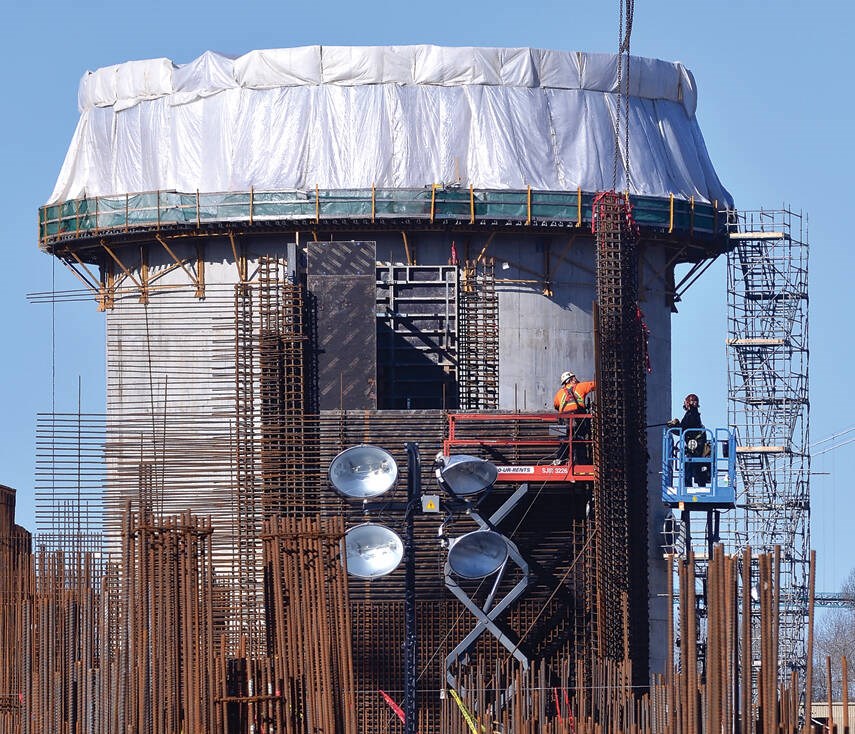District of West Vancouver council has devised a way to shield local taxpayers from the financial walloping that the overbudget North Shore Wastewater Treatment Plant is expected to bring – at least for a while.
District staff announced this week that future budgets will include a special North Shore Wastewater Treatment Plant Levy intended to cover the district’s share of the cost overruns for the beleaguered infrastructure project, which has seen its budget rise to $3.86 billion.
Typically, municipalities cover the costs of Metro Vancouver’s services and infrastructure through utility bills. But, by switching to a levy, those costs will become eligible for the province’s property tax deferment program.
“This method offers greater flexibility for property owners to manage the financial impact on their households. Deferring property taxes for the proposed North Shore Wastewater Treatment Plant Levy is a choice up to each property owner,” a statement from the district read. “Whereas by including it as a utility charge, there is no option to defer.”
Under the program, homeowners from certain demographics – including those who are over the age of 55, widowed or living with disabilities, families with children or those in financial hardship – can apply to the Ministry of Finance to have the province pay their municipal taxes in the form of a loan. The ministry then puts a lien on the property and charges simple, non-compound interest. The interest rates are recalculated regularly but as of now, they range 5.2 to 7.2 per cent, depending on which program the homeowner applies through.
The proposed levy for a single-family home assessed at the $3.74-million West Vancouver average would be about $235 in 2025, rising to $1,175 by 2029. For an owner of a condo assessed at the $1.7 million average, those levies are expected to range from $107 in 2025 to $534 by 2029.
At Monday’s meeting, West Vancouver Mayor Mark Sager said council brought the matter up with Ministry of Finance staff during the recent Union of B.C. Municipalities conference and found them “very receptive.”
“I think we got a very fair hearing from them,” he said.
Metro Vancouver, meanwhile, has named retired judge John. J.L. Hunter as its advisor for an independent performance audit into the boondoggle. Hunter will be expected to help tailor the scope, terms of reference and a process to select an independent, qualified reviewer for the audit.
The regional authority is now nearing the end of its 2025 budget process, covering all of the other services it delivers including drinking water, sewage treatment, waste management, regional parks, regional planning, and air quality management.
In a release, board chair and Burnaby Mayor Mike Hurley said the average homeowner across the region will see that portion of their tax bill rise by 9.9 per cent next year, down from the previously projected 11 per cent increase.



